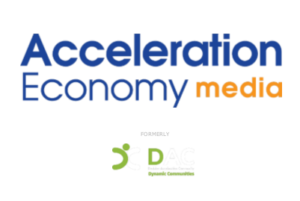Day 3 Highlights from Community Summit NA 2024: Expert Insights on Dynamics, Power Platform, and Copilot Innovations
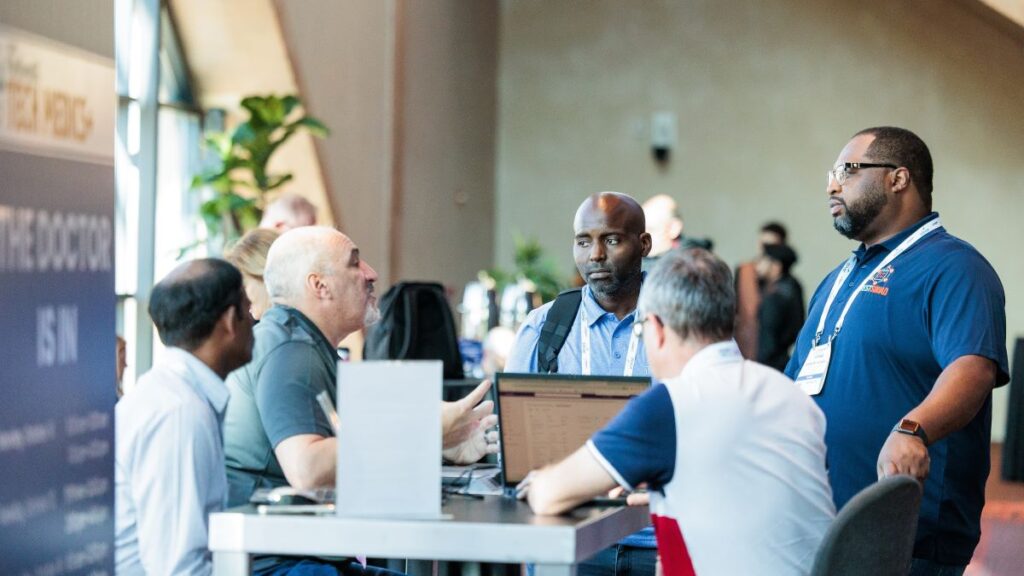
Community Summit NA 2024 education sessions opened today, with learning opportunities for the 5,000-plus attendees across user groups:
- Business Central/NAV
- Dynamics 365 CE/CRM
- Dynamics 365 F&O/AX
- Dynamics GP
- Microsoft Copilot
- Power Platform
This report provides highlights and takeaways from the sessions our team sat in on today.
Business Central/NAV
Leanne Paul from ArcherPoint and Chris Warren from ivWatch, LLC delivered a presentation titled “Smooth Sailing or Stormy Waters: Navigating Business Central Success with Rigorous Testing.” Attendees gathered at 9:15 AM to explore the importance of functional testing in Business Central upgrades and implementations.
They walked the audience through practical strategies for testing, sharing tips on methodologies that ensure all critical aspects of the software are thoroughly examined. Poor testing can lead to significant consequences for organizations, including user frustration, increased errors, and decreased productivity. Chris shared anecdotal stories of poor testing, saying they led to “nightmare” situations.
Key Takeaways:
- Purpose of Testing: Effective testing is crucial for smooth upgrades. This includes understanding the importance of thorough testing to avoid errors post-go-live, which can lead to productivity losses and frustration among users.
- Testing Scripts: Each company or ledger should have its own testing scripts to ensure all requirements are met, rather than relying on a single basic test.
- Importance of Documentation: Stress is placed on the necessity of having a documented testing process, with clear sign-offs, to hold team members accountable and to track what has been tested. “The longest part for us when starting the upgrade is me doing the documentation . . . the actual testing itself doesn’t take that long,” Chris said.

Copilot
Geoff Ables, managing partner of C5 Insight and Microsoft MVP, delivered a Strategic Overview of Crafting Custom Copilots. Ables’ presentation was a blend of practical business benefit, how-to videos, and inspiration on the benefits of AI, GenAI, and Copilots including those that are custom-developed.
“We’re going to burn ourselves a few times on this journey but ultimately I think AI used appropriately will not just be our assistant. It will actually enhance our ability to do things as humans as well,” Ables said.
Ables demonstrated a Copilot called Knowledge built in Copilot Studio that finds needed data quickly from the Dataverse back end of PowerPlatform. He also detailed “Actions” (a future capability from Microsoft) which can be created in Copilot Studio. Actions are pre-defined processes that can happen outside of Copilot. “These are super powerful, these are the next level of Copilot,” he says, noting that they’re in an early stage and customers should use them at their own risk.
He also shared his perspective on agents, which have these characteristics:
- They do work for you
- They use non-prompt triggers
- Stay engaged on long-running tasks
Users can create copilots that act as agents.
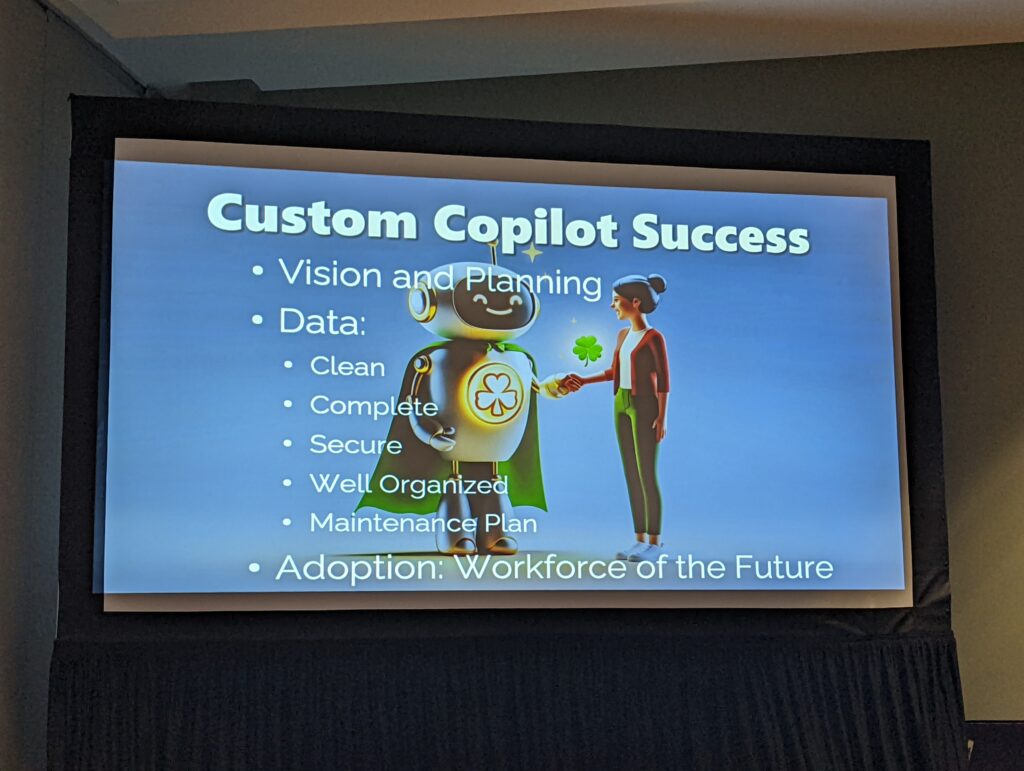
Finally, Ables shared his opinion on new voice functionality in Copilot: “It’s not a toy. It’s a game changer,” because of the natural interactions and productivity it enables.
Dynamics 365 CE/CRM and Power Platform
Andrew Ford, vice president of Innovation at TrellisPoint, presented his session “Keys to a Successful Project: How a Strategic Approach to Your Project is a Secret Weapon for Achieving Your Outcomes” for both CRM and Power Platform user groups. Knowing that it can be discouraging not gaining the expected value out of a project, Ford explained how the solution is easily achievable with a strategic mindset and support from decision makers.
Approaching everything with a strategic mindset — identifying long-term goals and the means of achieving them — is essential to success. “At its core, having a strategic mindset means not just understanding what you are going to do but first understanding why you are doing it,” he defined.
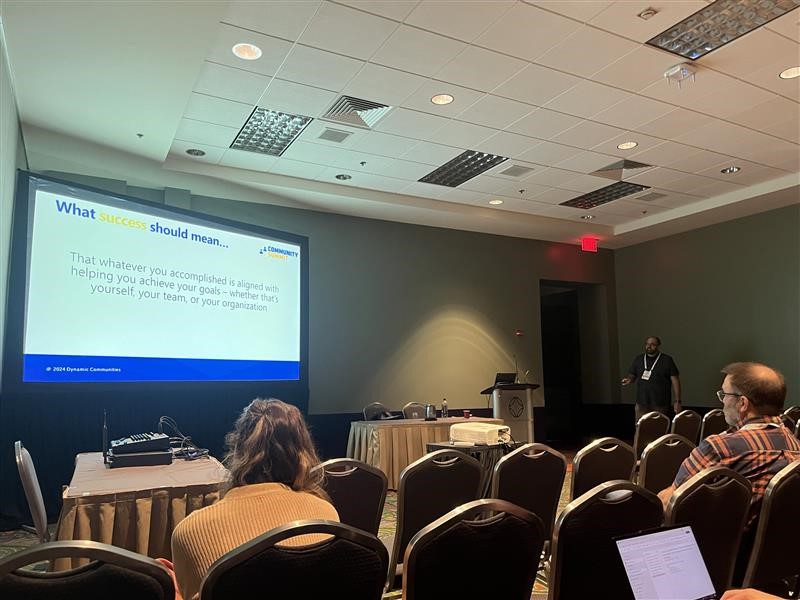
Knowing yourself and your teams can also help with project success. He highlighted the six types of working geniuses — wonder, ideation, discernment, galvanizing, enablement, and tenacity. By having an understanding of how individuals on a team work, it can reveal potential gaps throughout the project and enable the team to fill those holes, putting the project back on the path of success.
“The low code capabilities [of Power Platform] allow us to create single purpose business applications that allow us to achieve something you couldn’t do before really quickly,” he acknowledged. With these tools, it’s vital to consider the end user when designing and developing solutions. Doing things the same way you always have can also lead to failure, so it’s important to be agile.
“Don’t let your desire for perfection stop you from improving,” he encouraged. “If you try to make everything perfect all the time, you’re going to achieve nothing…less can be more.” Ford concluded with a few key takeaways: know your why, stay curious, be generous, understand your team, and don’t implement a tool if you’re not ready to do it right.
Dynamics 365 F&O/AX
This morning’s session, “Choosing the Right Dynamics 365 Finance (or Fabric!) Reporting Tool for the Job,” aimed to help attendees navigate the complex world of reporting tools in Dynamics 365 Finance and Microsoft Fabric. Led by Lenore Flower, senior business intelligence analyst at Caf2Code, the session walked participants through choosing the right reporting tools for their specific needs, focusing on understanding user requirements, defining report goals, and effectively utilizing available resources.
Key Takeaways
Several significant trends were discussed:
- Determining Report Needs: Not all requests labeled as “reporting” are genuine reports. Lenore explained how to identify non-reporting needs, such as data entry or automation requests, and advises involving appropriate tools or personnel.
- Collaboration: Lenore urged attendees to “Remember that [building reports] is a team sport. Plan accordingly. Don’t try to go solo. You’ll build the wrong thing, the right tool requires, requirements and capacity.”
- Data Maturity: Organizations with low data maturity often face challenges, such as discrepancies in reporting and difficulties in agreeing on calculations.vSigns of low maturity include incomplete data requirements and ambiguity in data definitions.
Flower also introduced “rubber duck debugging.” The idea is that explaining a problem to a rubber duck can help one think through one’s problems more effectively.
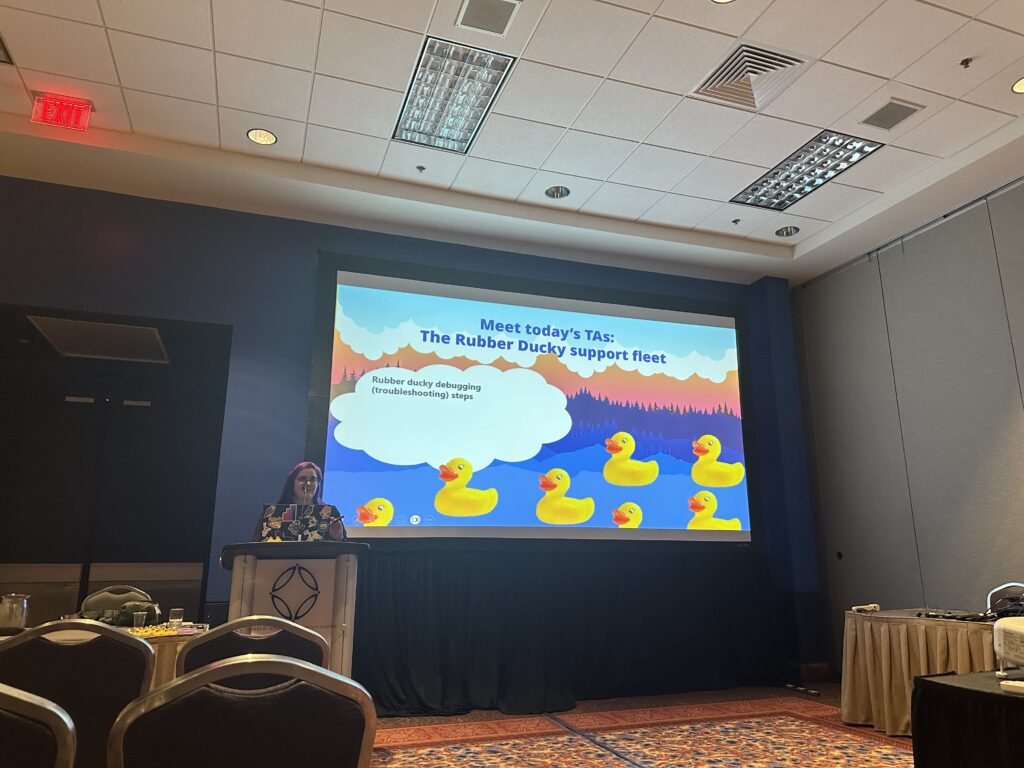
Dynamics GP
Mark Polino, director of customer success for Fastpath, now part of Delinea, laid out principles of “GP Security Simplified” that span permission management, users, data, mitigating risk, and reviewing access levels for all individual users on a periodic basis.
Key points Polino delivered:
- The value of using limited/self-serve GP licenses for someone who needs to perform one or a small number of tasks such as create an expense report — on a time-limited basis. Self-serve licenses ensure better protection at lower cost.
- Have a process for provisioning users that specifies what the person needs to access and their authorization level. Polino cautioned against over-provisioning and using the “power user” role with no access limits.
- Consider a third-party audit trail tool because GP will tell you a change was made to a record, but won’t tell you what the change is, whereas an audit trail tool will provide that level of detail.

— Tom Smith, Maya Rock, and Sara Cordova contributed to this report.


